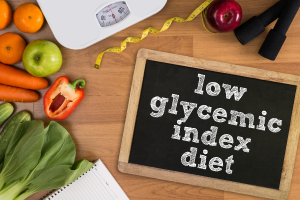

With hot temperatures and irritating sweat, summer months demand a whole new routine to keep yourself fit. Due to conditions that cause excessive perspiration, the sodium levels of the body can drop. In general, most individuals have the right amounts of sodium in their body, if not excessive. On average, our diets contain high amounts of salt which can be bad for our health when not adjusted. However, during summers, people may add more salt in diet to make up for the sodium filtered out through perspiration. But does having more salt during summers actually cause more harm than good?
Why is Salt Important?
Salt, also known as sodium chloride, consists of 40% sodium and 60% chloride. These are two essential minerals required by the body. While chloride helps sodium regulate the water content and electrolyte balance in the body, sodium plays many more roles. An essential for muscle and nerve functioning, sodium helps the body absorb specific essential nutrients and maintain water balance in the body.
Salt is a food preservative and is also used as a binder and stabiliser. However, the human body only needs a small amount to carry out its functions. You may crave salt during the summers but that is mainly due to dehydration. During hot weather, a little extra amount of salt might be required but consuming extra salt does not do much for the body. Despite excessive perspiration, the human body is able to replenish the salt levels with the salt absorbed from meals.
What are the Negative Side Effects of Excess Sodium?
As essential as sodium is for our body, modern day diets contain too much of it. An excessive intake of salt can cause numerous negative effects on the body. Some of them are listed below:
1. Water Retention
Consuming high amounts of sodium may make your body retain excess amounts of water. The kidneys must hold a specific water-to-sodium ratio, which is why they retain excess water to balance out the sodium levels. Water retention may make you feel bloated at first, and later may result in swelling in your hands and feet.
2. Increased Thirst
A salty meal can make your mouth feel dry and this triggers intense thirst. This is another way your body signals you to maintain its water-to-sodium ratio.
3. Increased Blood Pressure
Sodium is mainly present in our body’s bloodstream and is known to attract water. A salty meal may also trigger large amounts of blood to flow through your blood vessels, increasing the workload of the heart and may stiffen blood vessels causing an increase in blood pressure.
4. May Increase Risk of Stomach Cancer
Several studies have linked excess salt consumption over a prolonged period of time with an increased risk of stomach cancer. A study conducted suggested that out of 268,000 subjects, those with an average daily salt intake of 3g may be 68% more susceptible to stomach cancer.
5. May Affect Heart Health
Studies have suggested that excessive salt consumption may cause stress on the heart by increasing the blood pressure and stiffening the arteries and blood vessels. These developments in the cardiovascular system may make the patient more susceptible to heart disease and premature death.
How to Reduce Your Salt Intake?
According to the National Health Service (NHS), England, the recommended daily salt consumption is 6g or one teaspoon. However, much of the salt we eat is added to ordinary items like bread, morning cereal, and prepared meals. Simply opting for a no salt diet is an easy approach to eating less salt. Food without salt may seem terrible but vegetables, meat, and fish already contain natural salts. Other flavourings, such as herbs, spices, or balsamic vinegar, might be added to enhance the flavour. However, a no salt diet is only one half of the solution. To truly have a salt-free diet, choose low salt foods and be mindful of the nutritional information of the pre-packed products you buy on a regular basis and pick those with lower salt content per 100g.
- Products with more than 1.5g salt per 100g have high salt content.
- Products with 0.3g salt or less per 100g have low salt content.
- Products with salt contents between 0.3g and 1.5g per 100g have a medium level of salt content.
Conclusion
Though summers make us sweat excessively, we know that our body is capable of taking care of its necessities with just a little extra amount of salt. As such, consuming extra salt in diet during the summers does not benefit us too much but excessive salt may cause problems like heart disease and increased blood pressure. When dealing with hot days, a good amount of hydration and an occasional snack keeps you going perfectly well and keeps the water-to-sodium levels in your body balanced.




